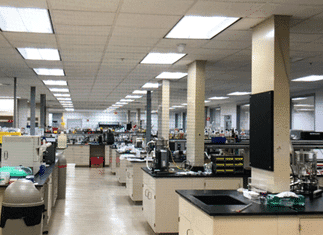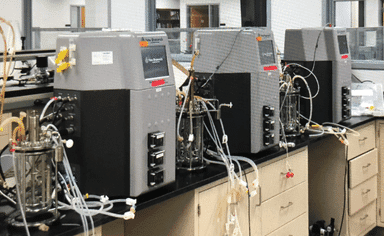How one company is revolutionizing fermentation from design to industrial production
Sep 25, 2018
This article is brought to you by Conagen Inc. Conagen Inc. uses live organism engineering to produce a wide range of molecules for applications in food, nutrition, pharmaceuticals, and renewable materials. To learn more, visit conagen-inc.comIf you’ve ever enjoyed a creamy brie or full-bodied IPA, you’ve enjoyed the products of microbial fermentation. Fermentation is an ancient process that has shaped civilization, discovered and re-discovered by different cultures and societies throughout history. In today’s technology-and-data-driven world, fermentation is poised to influence civilization in exciting new ways. As we understand more about fermentation and the microbes responsible for the process, we are learning how to leverage and optimize microbial fermentation to improve the health of humankind -- and the planet as a whole.
Full scale industrial fermentation is challenging
In concept the process is simple; in practice, industrial fermentation is difficult. First, a product must be designed and its function tested in the laboratory: the microbes and their growth conditions must be tested and tweaked to produce pure, functional products. If a product can’t be produced at small scale in the laboratory, it will never make it to large-scale commercial production.Next, the process is moved into the large-scale operations necessary for high-volume industrial production. Scaling up is challenging, as what works in the laboratory may not work the same or at all in the industrial setting. Tweaks and optimization are modus operandi at this stage. Once the process is working efficiently in the industrial setting, full scale production can begin.The entire process is challenging and extremely time-consuming, and most companies in the industry do not design, test, and scale-up. Instead, they focus on one process or parts of one process and outsource the rest. But one company is breaking the mold. Conagen, Inc., in Bedford, Massachusetts, is uniquely capable of bringing products from design all the way up to full-scale production. Manager of Scientific Operations Matt Mattozzi calls this process “integrated manufacturing.”
A novel solution: integrated manufacturing
The integrated manufacturing system used by Conagen is a feedback loop, enabling the company to more rapidly bring their products (currently about 30) from design to full-scale implementation. There are four major services in Conagen’s chain -- Design, Lab Development, Pilot, and Full-Scale Production -- and there are multiple points of feedback in the chain. For example, results from lab testing and development can inform an improved product design. Or, the process can quickly and easily scale back down to the lab development phase to troubleshoot issues arising during the pilot and full-scale production phases.


The Conagen labs. Produced by SynBioBeta with Conagen.
Beyond home base: a full-spectrum service provider
“When a product comes to us, it’s usually at the flask level, or even just an idea, a problem in need of solving” says Mattozzi. “We then bring it to the bench scale and then very quickly move the product to plant scale. And we can do this relatively quickly because of our extremely close working relationships with our manufacturing partners.”Conagen can also help at earlier stages, including at the strain development and improvement stages. For example, they can help an academic researcher move their microbial strain out of the lab and into the commercial sector by fine-tuning the strain in-house and then pushing it through the rest of the development chain. A high-throughput, automated screening process facilitates strain design and optimization, and fermenters of various sizes -- from 1mL and 100mL mini fermenters to 50L pilot-scale fermenters -- enable Conagen to efficiently test and develop products at all stages.With over 140 people with expertise in various areas of process engineering , including synthetic biology, plant biochemistry, metabolic engineering, enzyme discovery, protein engineering, fermentation, and scale-up. Conagen is able to serve a wide range of clients and collaborators. And by facilitating the production of a wide variety of products from food and beverage ingredients to renewable materials and medicinal compounds, Conagen is helping to write the next chapter of the intricate relationship between fermentation and life as we know it.


















